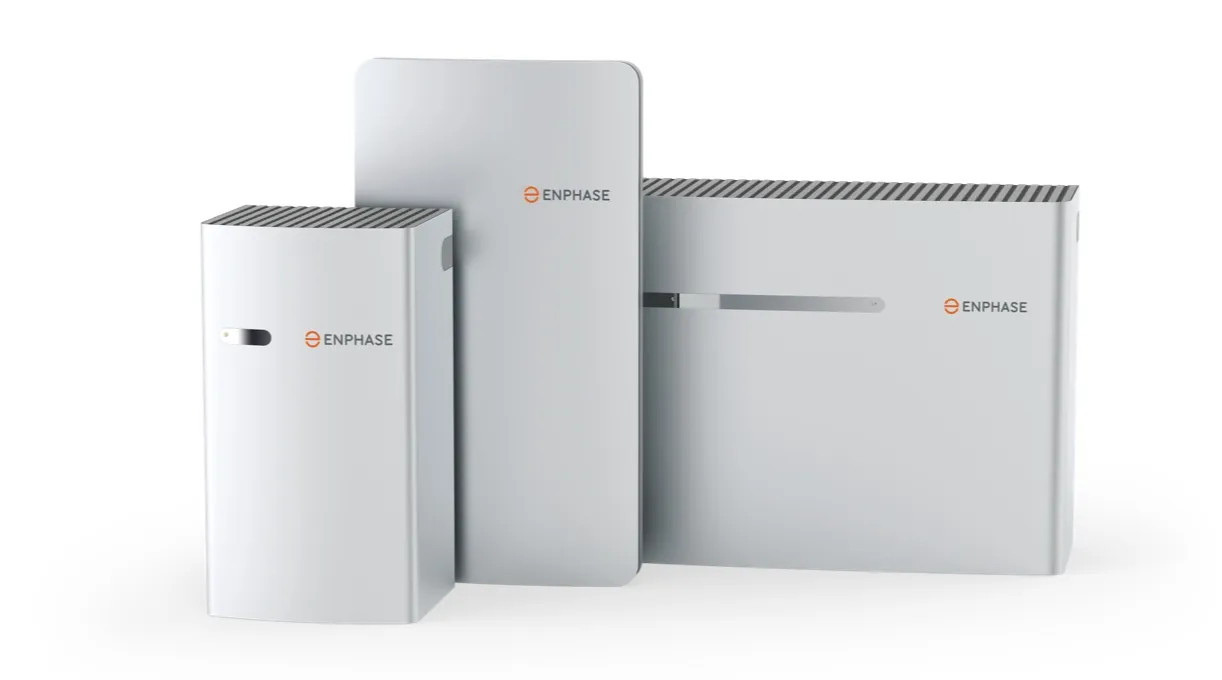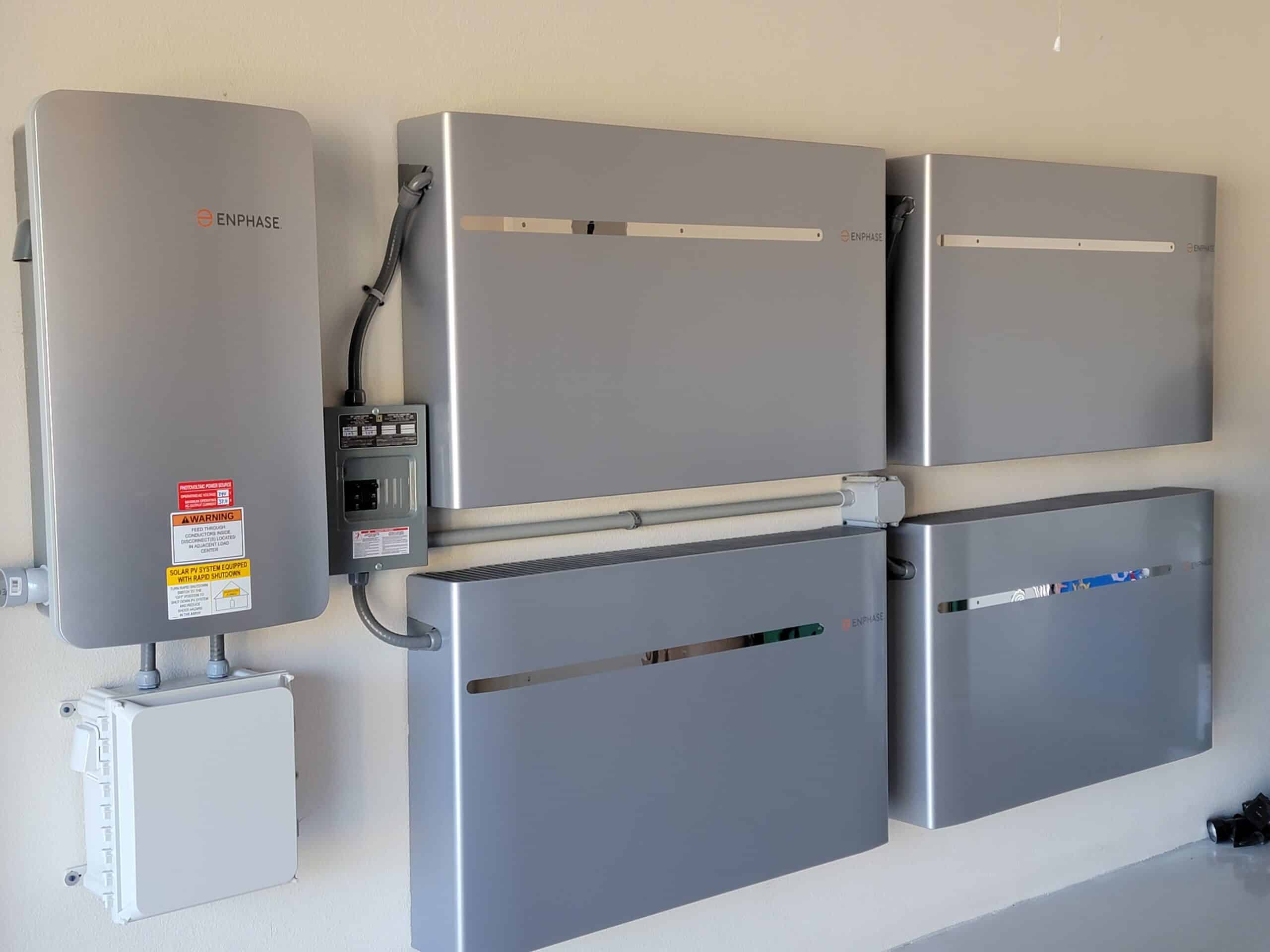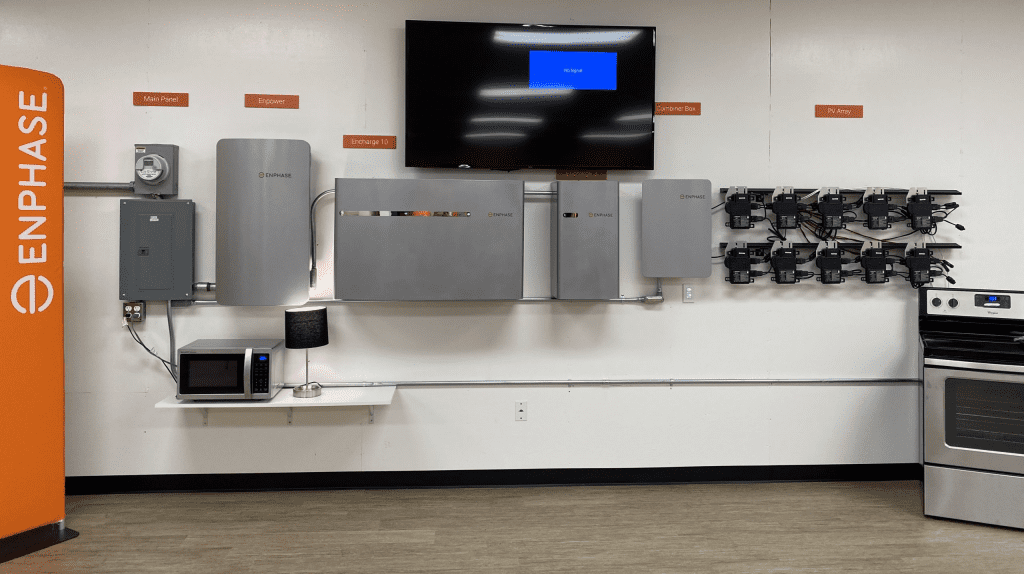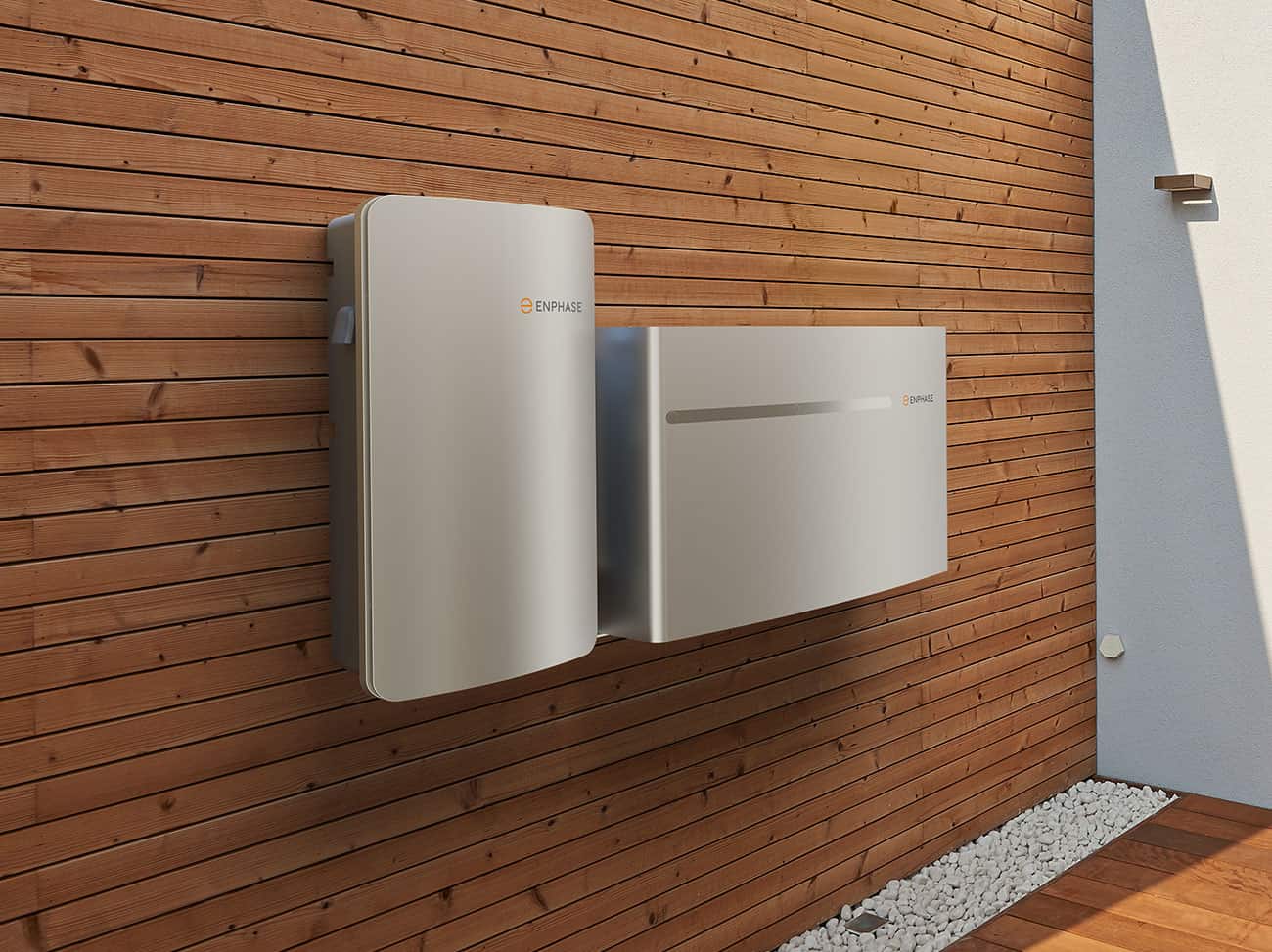Are you looking to invest in an Enphase Battery?
Reliable, smart, and safe to use, Enphase Battery is the brainchild of Enphase Energy, a giant in the solar inverter industry.
The company started as a manufacturer of microinverters for solar systems in 2006. But after the success of its microinverters, it dived into the energy storage systems market with the launch of its Enphase Encharge.
In 2021, Enphase Energy rebranded its battery storage to Enphase IQ Battery to bring it under the “IQ” nomenclature.
This article will break down the Enphase Battery cost. In addition, we will take a closer look at how the battery works and if it’s a worthy investment.
Table of Contents
What Is Enphase Battery System?

Before we look at the cost, let’s learn about Enphase battery storage. It’s an all-in-one AC-coupled battery, meaning it comes with a built-in inverter. As a result, users can pair it with their solar panels.
Unlike other popular AC-coupled batteries, like the Tesla Powerwall, Enphase’s AC battery stands out because it uses the manufacturer’s unique microinverter technology.
In terms of battery chemistry, Enphase solar batteries use high-efficiency, toxic-free lithium-iron-phosphate technology. This makes them extremely lightweight.
However, this doesn’t affect their performance. They charge quickly and give you 100% access to the electricity stored. That’s much better than using a lead-acid battery that allows you to discharge only 50% of its total capacity.
On top of that, the technology makes the battery safer and long-lasting compared to any cobalt-based lithium-ion battery.
Types of Enphase Batteries Available
Enphase Energy provides customers with four types of batteries, including:
- IQ Battery 3
- IQ Battery 3T
- IQ Battery 10
- IQ Battery 10 T
The IQ 3 and 3T are the smallest Enphase batteries based on size and the amount of energy they can store. But the 3T is thinner and lighter compared to the IQ3.
These models share technical specifications. Both have a 3.36 kWh capacity and produce 1.28 kW of power. You can use them to power your TV, fridge, and PC, among other electronics during a power outage.
The interesting part, you can pair two or three IQ 3 batteries to run large appliances in your home or to enjoy electricity throughout the night.
Like the IQ 3 models, the IQ 10 models share the same specs. The only difference is in the warranty and physical size. With these batteries, you will enjoy an energy capacity of 10.08 kWh and a power output of 3.84 kW.
Most homes in the USA require an average of 10, 632 kWh of electricity per year. That comes to 29 kWh of energy consumption daily. Therefore, IQ 10 and IQ 10T store up to 30% of the required electricity. This makes them a great source of backup power for most homes.
Despite their size, these batteries’ power output of 3.84 kW is negligible compared to the output of other solar batteries in the market, like LG RESU Prime and Tesla Powerwall.
Although a single IQ 10 battery can only power a few appliances in your home, you can pair it with another IQ 10 battery to enjoy increased energy capacity and power.
Remember, installing more than one Enphase battery means higher installation costs.
How Much Does Enphase Battery System Cost?

The Enphase IQ 3 and IQ 3T batteries will cost about $3,000. For IQ 10 and IQ 10 T, you might spend anywhere between $7,000 and $10,000.
Of course, these are just the list price of the battery. You might need to purchase other supporting components, including:
- Envoy-S Metered – $600
- Wall Mount Bracket – $80
You must also factor in the installation costs. Usually, installation and labor can add an extra $1,000 or $2,000 to the cost of the battery. But these costs often change based on the installation company and location.
Your energy storage system design can influence the total cost of the Enphase battery too. For effective performance of the battery, you might have to upgrade your electric panel or invest in a backup sub-panel. This will add about $1,000 to the initial cost.
In some cases, you might want the added security a generator offers. In such a situation, you can connect your solar batteries to the generator via Enphase’s IQ system controller.
The system allows the generator, your solar panel, and the Enphase battery to work together simultaneously. The Enphase system controller will cost you about $1,707.
All costs considered; You can spend anywhere between $6,000 to $8,000 to install an Enphase IQ 3 or IQ 3T battery. If you opt for Enphase IQ 10 or IQ 10 battery, the cost can range from $12,000 to $17,000.
How To Reduce Enphase Battery Installation Costs
Without a doubt, it’s expensive to install an Enphase battery. Fortunately, this energy storage system qualifies for a 26% federal solar tax credit. The credit applies whether the system gets installed as a stand-alone unit or with solar panels.
Plus, some states offer financial incentives to help homeowners minimize installation costs for home energy storage systems.
For example, homeowners in California can take advantage of cash rebates offered through the Self-Generation Incentive Program (SGIP) to cut down on their home battery costs.
If you live in Arizona, you can get an incentive of up to $2,750 towards installation costs of your solar storage system via the battery storage program.
Other programs to checkout include:
- Oregon Solar Incentives
- Washington Solar Incentives
How Do Enphase Batteries Work?

Solar batteries store electricity as direct current (DC). Since solar panels generate DC electricity, you can pair the two.
However, our homes run on alternating current (AC). For this reason, solar installations require inverters to transform the direct current from the panels to alternating current needed by home appliances.
As an AC battery, an Enphase battery integrates with existing grid-tied solar panel systems and your home’s AC wiring. Since the battery features Enphase’s microinverter, it can convert DC electricity produced by the solar panels into usable AC electricity.
Once installed, an Enphase solar battery provides homeowners with reliable backup power. The battery stores excess energy generated by the panels during the day. Later, you can use the stored power when you need it the most, like at night or during a blackout, power outage, or grid cut.
Enphase Battery Warranty Details
Enphase Energy offers its consumers a 10-year warranty. They guarantee that the Enphase IQ battery will produce 70% of the rated storage capacity after it reaches one of the conditions below:
- 10 years of use
- 4,000 cycles
Enphase IQ battery shares the same technology as rechargeable batteries. That means it’s susceptible to degradation over time. As your battery charges and discharges, it loses its ability to hold a charge. But don’t mistake this as a flaw in the product.
Over the years, all batteries lose their potential to hold a charge, whether rechargeable AA batteries or home energy batteries. This explains why Enphase’s storage batteries come with a warranty that offers coverage for a specific storage capacity.
Is An Enphase Battery Worth It?
Enphase batteries stand out as one of the best energy storage solutions for solar panel systems for several reasons.
First, they are reliable. The batteries comprise non-toxic components, making them super safe. They also hold up well against temperature changes and overheating. They won’t heat up and catch fire or suffer degradation.
Second, the batteries come with microinverters that make it easier to monitor their performance. Using a dedicated Enphase app, you can track the performance of each panel, receive notifications when power performance reduces, and much more via your smartphone.
Despite these benefits, Enphase IQ batteries come with limitations. For instance, they produce less than average power, which is not enough to run power-hungry appliances.
Because of this, you need to pair multiple Enphase batteries. Alternatively, you can opt for other solar batteries boasting higher energy output.
Another downside is you can’t use them on solar systems using traditional inverters unless you upgrade the systems with Enphase microinverters. This means higher installation costs.
Apart from these few issues, an Enphase battery will serve you well for a long-time than traditional solar batteries. The 10 -year warranty also makes it a worthy choice for many people.
Closing Thoughts
The Enphase IQ battery is a worthy adversary to solar storage solutions like Tesla Powerwall, Sonnen Eco, Panasonic Evervolt, and Generac PWRcell. It’s safe and durable and you can connect it to a generator.
Enphase batteries will offer you the best performance, thanks to its monitoring app and microinverters that ensure every component works smoothly.
While it delivers less than average power, you can pair it up with multiple Enphase units to increase its power output along with its storage capacity.
It might seem expensive to invest in this solar storage system, but it’s a worthwhile investment as demonstrated above.
However, your choice of whether to buy an Enphase IQ battery will boil down to your electric bill rates and the reason you want to install a solar battery.
That’s all for today! Do you have any questions? Leave a comment below.
